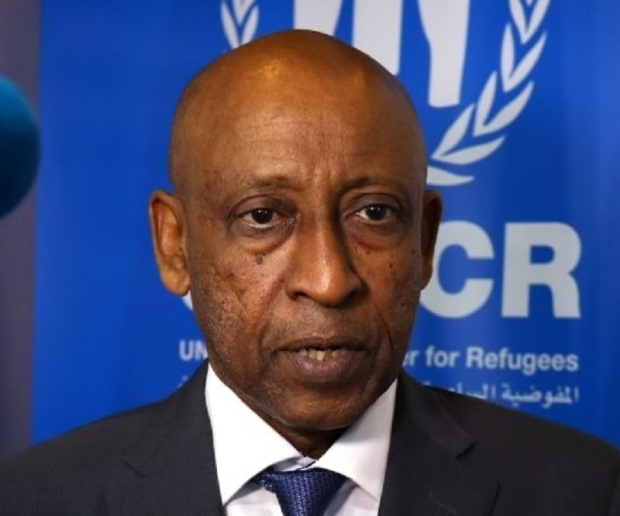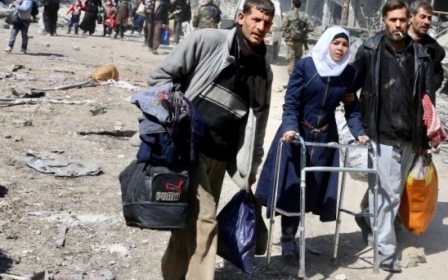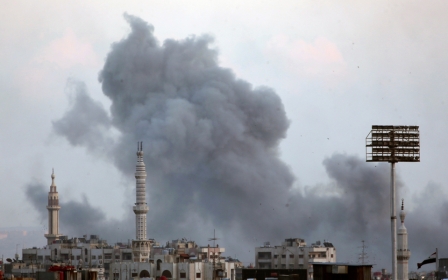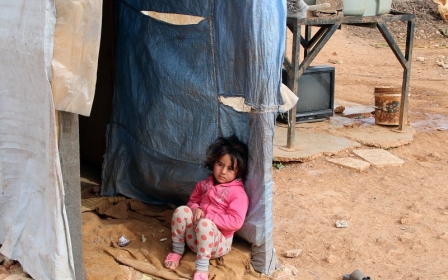EXCLUSIVE: EU faces second refugee crisis if Syria aid dries up, says UN chief
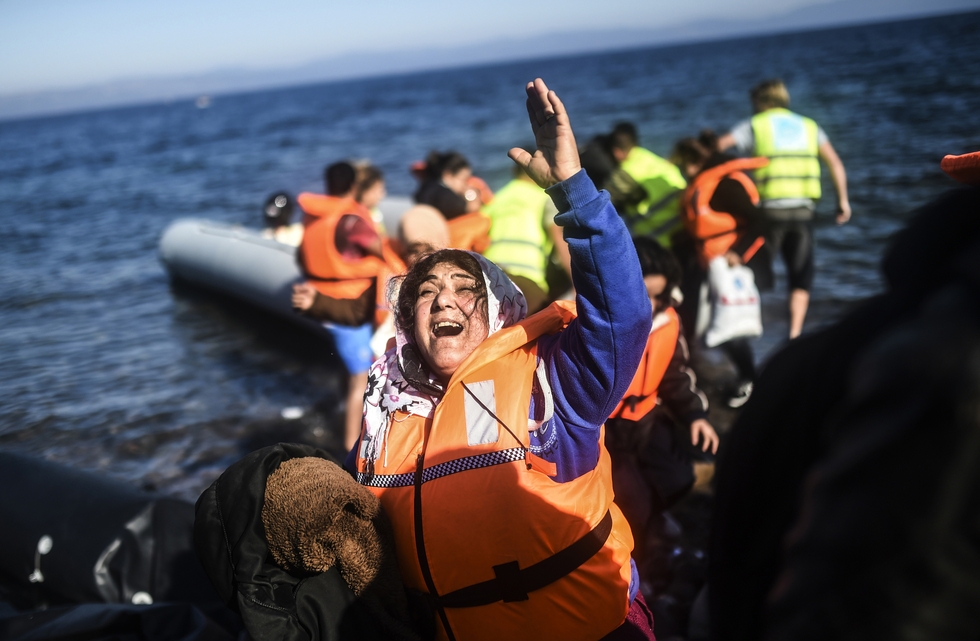
BRUSSELS - Europe faces a repeat of the 2015 refugee crisis that saw a vast "exodus" from Syria unless the international community honours financial commitments made to millions of refugees, the United Nations’ top refugee official in the Middle East has warned.
In an exclusive interview with Middle East Eye, Amin Awad, the head of the UN High Commissioner for Refugees (UNHCR) in the Middle East, issued the stark warning of humanitarian catastrophe as international donors gathered in Brussels.
To support Syrian refugees in Jordan, Turkey, Iraq, Egypt, Lebanon and in Syria, the EU and UN are calling for donors at the two-day "Brussels II" conference to pledge $6bn, but Awad said "donor fatigue" left him "concerned" this target would not be met.
"There was donor fatigue at the beginning of this crisis and the consequence in 2015 was a vast exodus to Europe," Awad said.
He said that since 2015 the UNHCR’s caseload had soared to 5.6 million refugees in the region, and that he fears a drop in funding would see a "repeat of 2015 and more".
On the ground, Awad said the "reality" of a failure to raise significant funds would be refugees "not receiving key services, not receiving funds and being forced to live in horrible conditions where they go deeper into debt and their children are unable to attend school."
He warned that if aid levels dropped refugees in the region "may look for other options", and pointed to more than 40,000 Syrian refugees who he said were already in Libya and looking to make the dangerous journey across the Mediterranean to Europe.
"First and foremost I fear that a lack of funding will impact the protective space for Syrian refugees that is currently being provided by the neighbouring countries," he said.
Food warning for Syrians in Amman
Awad’s comments were underscored by those made from Ayman al-Safadi, Jordan's foreign minister.
Safadi told delegates on Wednesday that a funding shortfall would see the World Food Programme in Amman forced to cut funding subsidies for 500,000 Syrian refugees later this year.
Officials in Brussels told MEE they fear this could just be one of a number of aid cutbacks, as newly released UN figures show that two key UN programmes for assistance inside Syria and in the region are critically underfunded.
The UNHCR’s Regional Resilience Plan to assist over nine million refugees in the region requires $5.6bn in 2018, but is currently only 27 percent funded, while the UN Humanitarian Response Plan inside Syria, which requires $3.51bn to assist 13.1m Syrians in need of humanitarian aid is only 14.6 percent funded.
The figures also show that support for refugee programmes in Egypt, Iraq, Jordan and Lebanon is $3.2bn short of UN requirements to provide a basic level of provision, while the countries continue to host refugees at an "unprecedented scale".
UN officials in Brussels told MEE that up to 80 percent of Syrian refugees in neighbouring countries were at risk of "rapidly sinking under the poverty line", and warned that without major pledges there are "genuine concerns" that UNHCR programmes across the region and in Syria would need to be radically cut back midway through 2018.
"The vulnerability criteria we are using to provide aid to Syrian families are being narrowed and narrowed again," the official said.
Speaking on the sidelines of the summit, Inge Brees, Care International's EU advocacy officer, told MEE that there was "understandable despondency and sadness" among NGOs and Syrian groups at the summit, that the same funding conversations that have taken place for more than seven years are being repeated in Brussels without adequate long-term commitments.
Britain to pledge £250m extra in aid
The British government has been praised for its financial commitment though, and Penny Mordaunt, the UK’s international development minister, is expected to pledge an additional £250m in aid to "protect civilians, aid workers and hospitals targeted by the Assad regime", as part of an overall package to Syria worth £2.71bn since the start of the conflict.
The UK has led the way in humanitarian response to the Syrian crisis and the new funding will help train thousands of doctors and nurses to deliver trauma care.
In addition, Mordaunt is expected to state that the pledge of UK aid support will help keep medical facilities open in the face of relentless attacks so doctors and nurses can save lives, as well as helping the millions of Syrian refugees sheltering in neighbouring countries.
The UK pledge comes in addition to £500m already promised for 2018 and 2019, but Mordaunt is expected to call on international donors to "go beyond" financial commitments, and "take concrete" actions towards peace. MEE understands UK funding is already being disbursed in Syria under the UN’s Humanitarian Response Plan.
However, there is concern that other donor countries may not be willing to make new pledges. One EU official said they feared the Brussels funding target "would not be met", though he hoped additional funding pledges would be forthcoming later in the year.
Meanwhile, the EU and United Nations leaders used the talks to call for a swift end to the violence in Syria, saying the latest military gains by Damascus and its allies had not brought peace any closer. Awad added: "In Syria, we have seen the ugly face of the Cold War come up again. It has become a centre of war by proxy."
In a pointed reference to the US and Russia, he added that the "richer and powerful" nations of the world should "continue to provide assistance" but also use their power to "end this war".
Brees said that recent changes on the ground in Syria meant that NGOs were "facing the double issue" of uncertainty over funding and "a lack of access" on the ground in areas such as Idlib and Afrin.
An aid worker from a Syrian-run NGO told MEE that the failure to discuss the situation in Afrin and EU failure to pressure Turkey would leave the aid response "hamstrung" in northern Syria.
This article is available in French on Middle East Eye French edition.
New MEE newsletter: Jerusalem Dispatch
Sign up to get the latest insights and analysis on Israel-Palestine, alongside Turkey Unpacked and other MEE newsletters
Middle East Eye delivers independent and unrivalled coverage and analysis of the Middle East, North Africa and beyond. To learn more about republishing this content and the associated fees, please fill out this form. More about MEE can be found here.


